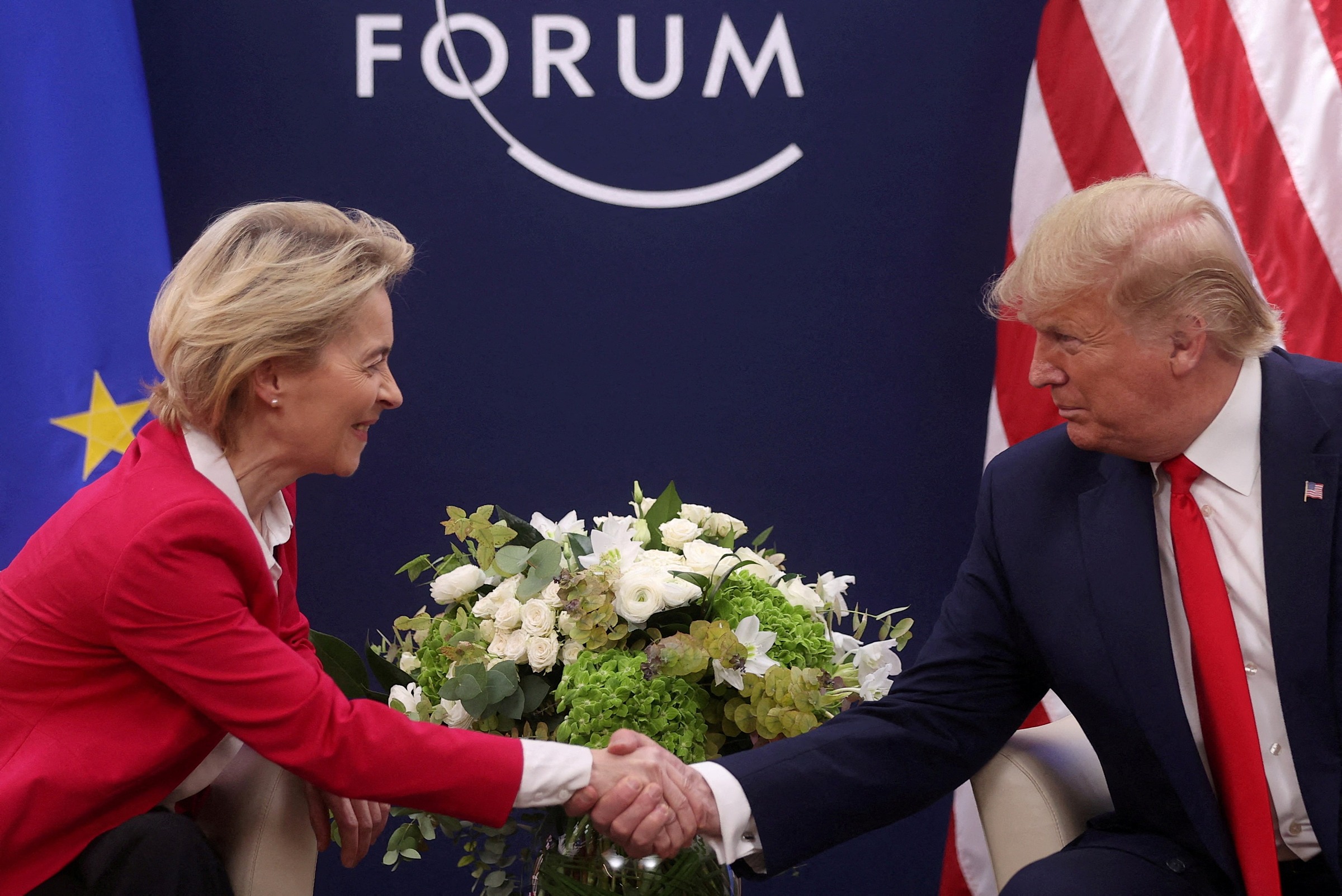European Commission (EC) President Ursula von der Leyen is scheduled to meet US President Donald Trump in Scotland on 27/7. European officials and diplomats have expressed hope that the two sides will reach a framework agreement this weekend.
On 25/7, Trump also predicted a 50% or lower chance of the US reaching a trade agreement with Europe. "It's a big deal. I think the European Union (EU) has a shot at it now," he said.
Months of trade tensions between the two sides have made investors cautious. "This is one of the largest US trading relationships, so if this last piece gets put into place, it would bring more investors back to the market," said Sameer Samana, global equity strategist at Wells Fargo Investment.
 |
European Commission President Ursula von der Leyen and US President Donald Trump in 2020. _Photo: Reuters_ |
Reuters, citing officials and diplomats, reports that the agreement would likely include a 15% import tariff reduction on all EU goods entering the US. Tariffs on aluminum and steel would be 50%.
Investor optimism over easing trade tensions has pushed US stock markets to consecutive record highs this month. The US president's announcement of retaliatory tariffs against all trading partners in April rattled Wall Street, as investors worried about a US recession.
They are now watching the situation as the August 1 deadline approaches. Countries that fail to reach trade agreements with the US will face new tariffs from this date.
The EU currently faces a 10% tariff on all goods entering the US. Tariffs on aluminum and steel are 50%, and on cars and car parts, 25%. US tariffs currently affect 380 billion euros (420 billion USD) worth of European goods, equivalent to about 70% of the region's exports. From August 1, the 10% tariff will be raised to 30%.
However, hopes for a deal with Europe have increased after Trump announced a trade agreement with Japan earlier this week. "This matters because the two are America’s largest trading partners, accounting for around 25% of total goods imports," analysts at Capital Economics said in a 25/7 report.
Under the agreement with Japan, tariffs on cars will be reduced to 15%, from 27.5% previously. The new reciprocal tariff for Japan will also be only 15%.
Capital Economics predicts a similar agreement with Europe, reducing car tariffs to 15%. New reciprocal tariffs could be 15% on all European goods. However, neither side has made any announcement on this matter.
On 25/7, Trump also warned that an agreement with Canada might not be reached. "We haven't really had much luck with Canada. I think Canada is a situation where we might just put on tariffs, without a deal," he said.
Ha Thu (_Reuters_)












